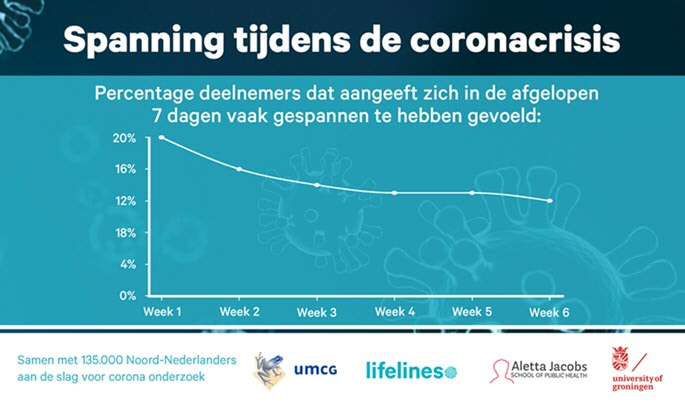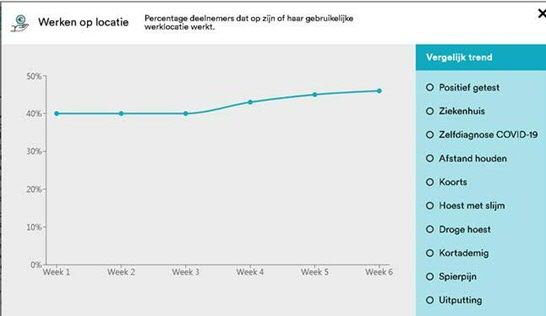Two months and 1 million more answers: the impact of the coronavirus pandemic on Northerners
While Northerners were frequently stressed at the beginning of April, they began to experience less worry and tension by the end of May. Now, they are sleeping better than they were at the beginning of the coronavirus pandemic and fewer people are afraid of losing their jobs. These are the latest findings of the large-scale Lifelines Corona Research Project, which has surveyed 50,000 Northerners on their health and wellbeing every week since the coronavirus measures were put in place. Insight into this data can be obtained via www.CoronaBarometer.nl, which now shows the development of the pandemic every week.

Power of repetition
Researchers from the University of Groningen (UG) and the University Medical Center Groningen (UMCG) have been collecting information from 50,000 people living in the Northern Netherlands on a weekly basis since the start of the coronavirus pandemic. Lead researcher Prof. Lude Franke emphasizes the importance of this research: ‘Now, via the Barometer, we can really see the value of repeatedly asking questions to participants. This makes the study unique and provides interesting insights. For example, we can see that people who indicated that they were eating healthier foods at the beginning of the crisis are now returning to their former eating patterns.’

Short and long-term consequences
The aim of the Lifelines coronavirus research project is to discover the risk factors for getting coronavirus and the physical and mental impact of crises like this. The participants in the project have been involved in the long-term Lifelines research programme for almost 15 years. This is why there is so much information available about them, their genetic data and their lifestyles. The Lifelines programme is expected to continue collecting data from this group for at least 10 more years. This will therefore also reveal the long-term consequences of the pandemic on physical and mental health.
With the knowledge of the Northern Netherlands
The Lifelines coronavirus research project is a joint initiative between the UMCG, the UG, the Aletta Jacobs School of Public Health and the Lifelines programme. It is partly made possible by the University of the North, a collective of northern knowledge institutions, and is supported by the Ubbo Emmius Fund and the NDC media group. To additionally finance this research, a crowdfunding campaign to combat the coronavirus was launched and has raised over € 40,000 so far. More information can be found at www.rugsteunt.nl/corona.
More news
-
17 November 2025
Artificial intelligence in healthcare
-
04 November 2025
AI Factory in Groningen advances digital sovereignty
-
03 November 2025
Menopause in perspective: How the media influences our perception
